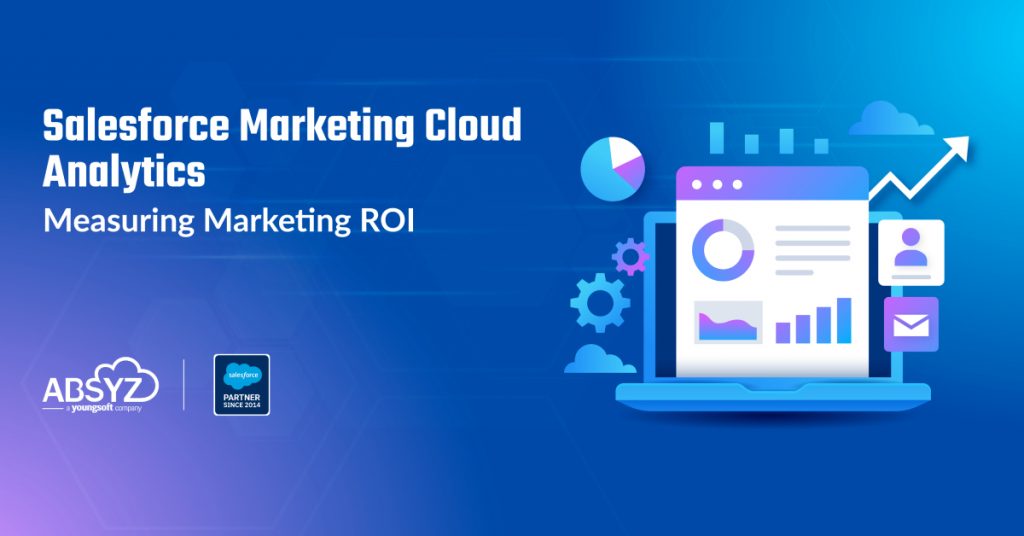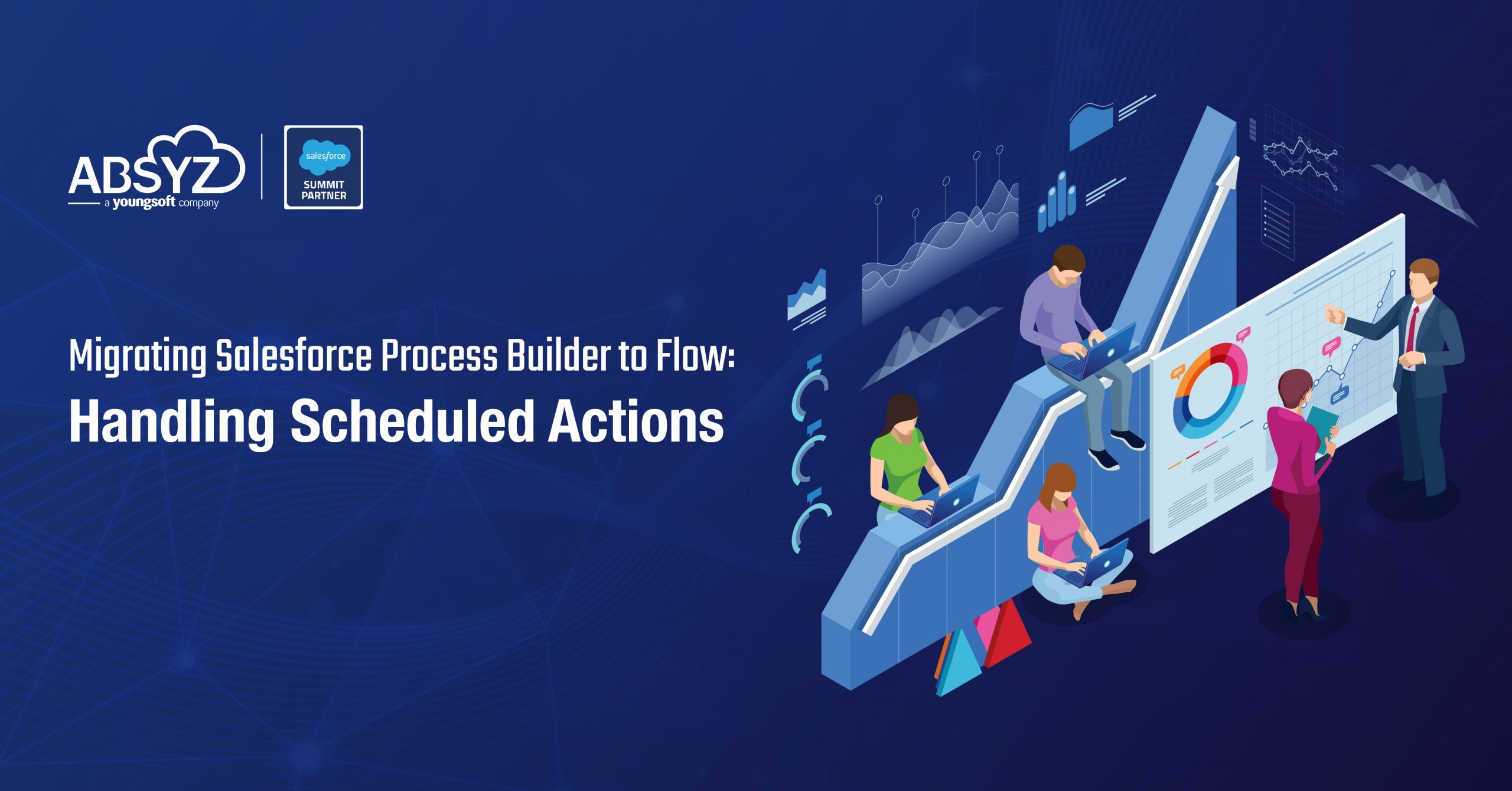According to Salesforce Marketing Cloud Analytics, the RoI of companies that exploit the capacities of Salesforce Marketing Cloud is raised by a notable 43% and a remarkable 44% surge in lead volume compared to other tools. Understanding and measuring Return on Investment (ROI) in this ever-changing digital marketing ecosystem is essential for businesses trying to optimize their marketing strategies.
Salesforce Marketing Cloud Analytics provides an alternative approach for picking apart and assessing how well your marketing strategies are working. We will now look into what we mean by marketing ROI and emphasize how organizations can use Salesforce Marketing Cloud Analytics to enable data-driven decision-making resulting in optimal performance.
What is Salesforce Marketing Cloud?
The idea that you could have total control at your fingertips and do everything using automation was something unimaginable. However, with the advent of Marketing Cloud, Salesforce has made this dream come true. The Salesforce Marketing Cloud (SFMC) is just like a complete online marketer’s toolkit all rolled into one superhero package with many features to enhance all aspects of your marketing game. Furthermore, SFMC enables marketers to have a holistic view of their customers thereby improving personalized interaction across each marketing channel.
The Power of Salesforce Marketing Cloud Analytics
Salesforce Marketing Cloud Analytics is a powerful tool that gives you valuable insights into your marketing activities.. It has some features and capabilities for businesses that are willing to measure their marketing return on investments.
1) Multi-Channel Tracking
You can utilize Salesforce Marketing Cloud Analytics to monitor how well your marketing campaigns are doing on different platforms like email, SMS, and push notifications. This helps you gain a complete understanding of your customers’ interactions.
2) Customer Journey Analysis
Understand the customer journey better by leveraging the analytics tools that Salesforce Marketing Cloud offers. Uncover touchpoints, identify engagement patterns, and refine your strategies accordingly.
3) Real-time Reporting
Real-time reporting is important in today’s fast-paced business environment. Marketers can get up-to-the-minute insights from Salesforce Marketing Cloud Analytics and thus make quick decisions
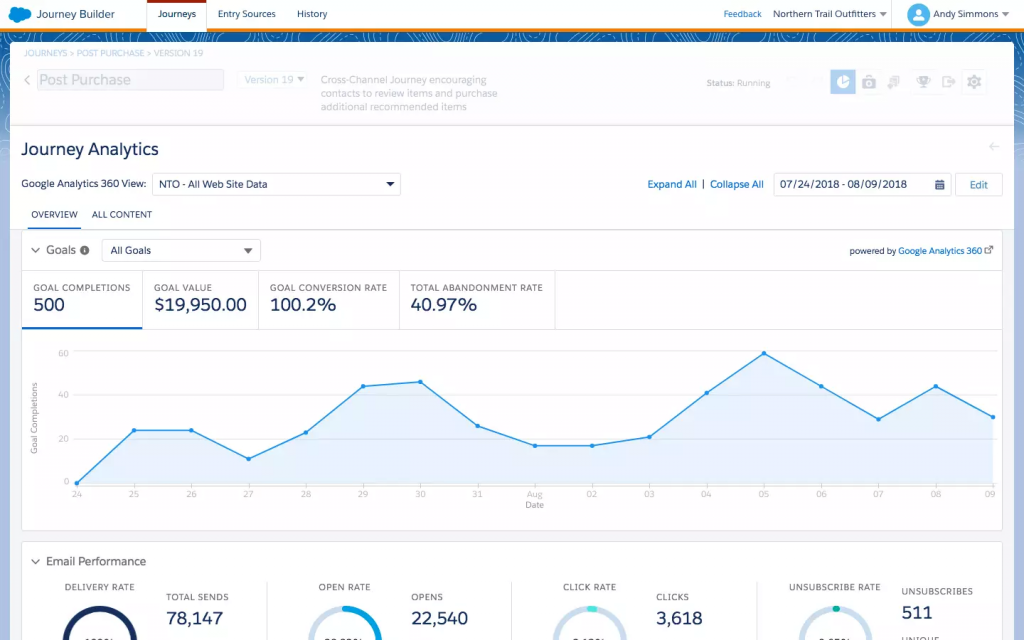
Source: Salesforce
Introducing Analytics Builder in Salesforce Marketing Cloud:
Analytics Builder empowers you to delve into the behaviors and interests of your contacts across various channels, providing profound insights. Leverage these insights to establish marketing goals and fine-tune customer journeys.
1) Measure Email Campaign Engagement:
Checking how engaged your audience is with your email campaigns is crucial for assessing the effectiveness of your email marketing. In Salesforce Marketing Cloud, you start by going to Email Studio and choosing the particular email campaign you wish to review. Salesforce Marketing Cloud provides a set of metrics for tracking email engagement by CTR, bounce rate, and unsubscribe rate. Analyzing these metrics provides insights into how recipients are interacting with your email campaign.
Salesforce Marketing Cloud’s Analytics Builder can be integrated to provide customer interactions by combining email engagement data channels and understanding customer behavior. Regularly monitoring email engagement metrics over time is crucial but longitudinal analysis helps in assessing the long-term impact of your email campaigns. Salesforce Marketing Cloud provides a variety of tools to measure and analyze email campaign engagement. These will enable marketers to gauge how successful their campaigns have been.
2) Customize Dashboard Views:
The marketers may select how they would wish data presented in terms of dashboards like tables, charts, or graphs and this makes it easy for them to analyze it using these views. This customization enhances the accessibility of information while making it less complex
Tailor your dashboard views by configuring flexible tables, charts, and graphs, allowing for a visual representation of your data. Collect features to observe contact behaviors such as clicks and purchases, understand your audience comprehensively, and leverage predictive behavior models to create targeted audiences, ensuring your marketing efforts reach the right people.
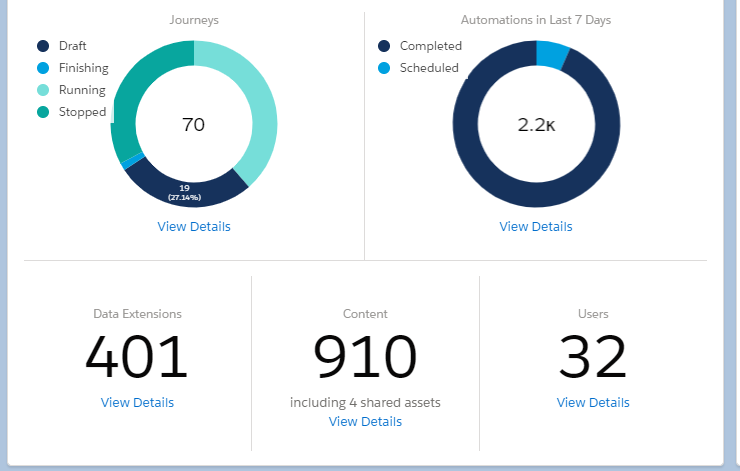
Source: salesforce.StackExchange
3) Track Journeys and Measure Progress:
Within Salesforce Marketing Cloud Analytics, it’s essential to closely monitor and evaluate the progress of your marketing journeys. Begin by navigating to Journey Builder in your account and selecting the specific journey you want to analyze. Once inside, explore the various metrics available to gain insights into how contacts enter and exit the journey, their engagement at different stages, and the overall success in achieving set goals. Customize your dashboard views to make this information more accessible and visually understandable. The real-time analytics feature allows you to observe and analyze contact progression in the journey as it unfolds, facilitating prompt adjustments for optimal results. Essentially, it’s akin to having a detailed map of each step in your marketing journey, enabling you to identify strengths and areas for improvement in real time. Monitor every interaction within a journey and gauge progress toward your objectives seamlessly in a unified interface within Journey Builder. Analytics Builder brings a suite of capabilities to enhance your understanding of customer engagement and guide strategic decisions in your marketing endeavors.
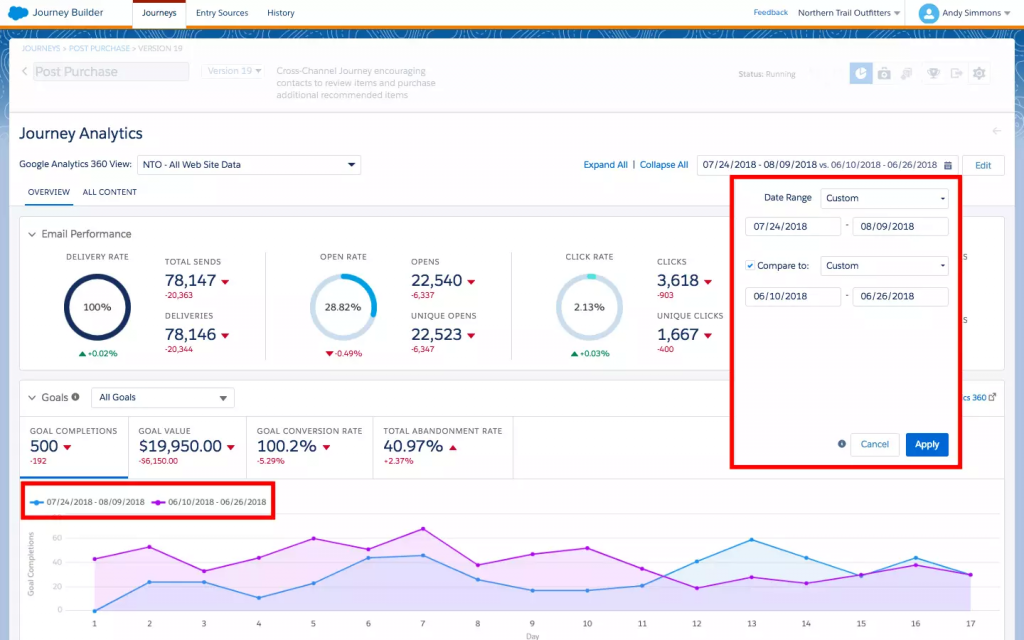
Source: Salesforce Dashboard
Why is it important to consider the significance of marketing ROI?
The key concept is that Return on Investment (ROI) is vital for the success of your investments. Marketing ROI assesses how well your marketing efforts are working by looking at profit and revenue growth. It also shows how effectively your marketing investments are doing compared to the resources put into different marketing channels like email, social media, and digital advertising platforms.
Conclusion
Salesforce Marketing Cloud Analytics is a useful tool for marketers. It helps measure and enhance Return on Investment (ROI) through various tools, and it evaluates marketing efforts from different perspectives to make them more successful. It employs a multichannel approach to measure, analyze, and optimize marketing efforts. This platform helps measure how effective an email campaign is by following a customer’s path from opening an email to making a purchase. Using real-time data for decision-making requires analytics that enable marketers to track changes in customers’ behavior over time. Finally, customization of dashboards makes it possible for business owners to optimize strategies based on their preferences while predictive behavior models and behavioral segmentation further increase the precision of targeting in campaigns thus increasing their overall success rate. Salesforce Marketing Cloud Analytics emerges as a strategic asset for achieving and maximizing ROI through continuous monitoring, analysis, and optimization of marketing efforts.

